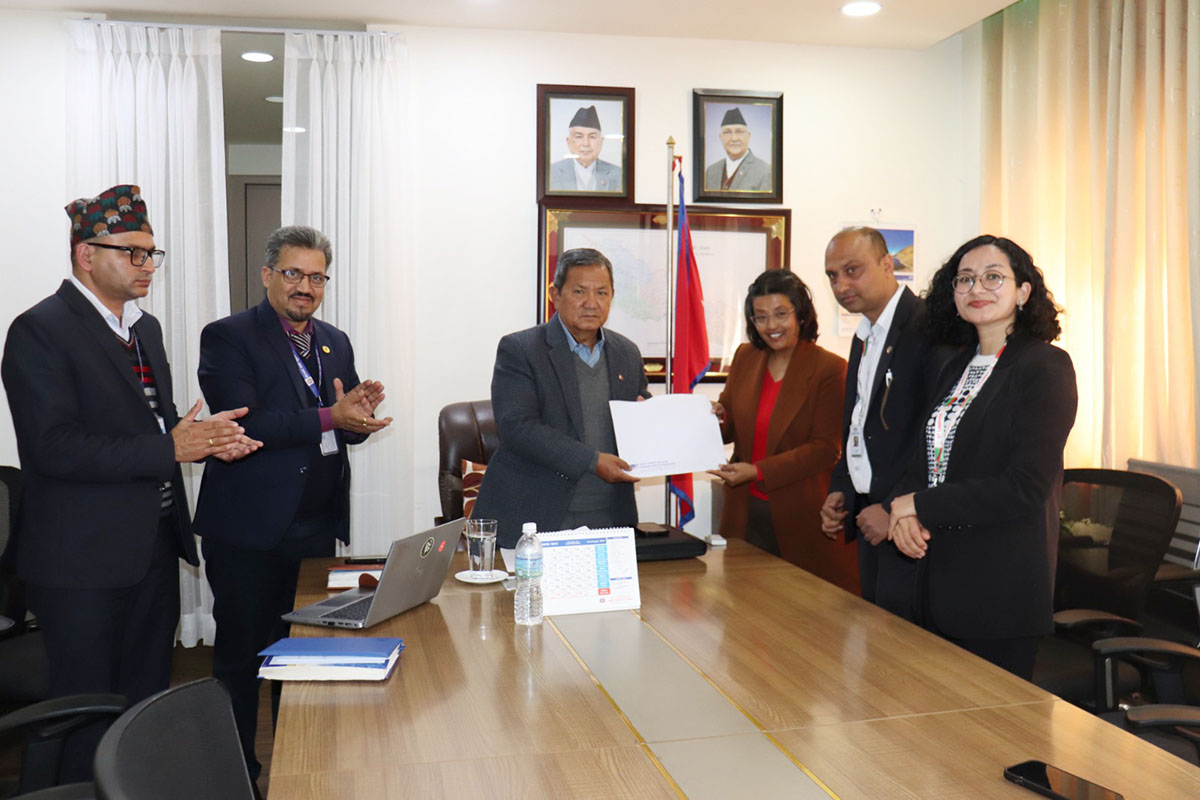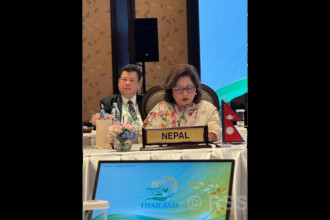
KATHMANDU: Federation of Computer Association Nepal (CAN Federation) has submitted a concept paper with key suggestions to the government for Nepal's first National Artificial Intelligence (AI) Policy.
A delegation from CAN Federation met with Minister for Communication and Information Technology, Prithvi Subba Gurung, on Sunday to present the concept paper titled 'Use and Practice of AI in Nepal.'
The document, prepared by CAN Federation’s AI coordinator and Vice President Chiranjibi Adhikari, IT experts Prof Dr Sudan Jha, Advocate Diksha Raut, and Ganga Bhandari, offers recommendations on technological innovation, AI research, ethical AI development, data security, and regulation.
CAN Federation emphasised the importance of promoting ethical AI, ensuring digital inclusion, protecting human rights, and establishing a robust data security system. It also called for clear AI policies, multi-sectoral collaboration, investment in the AI ecosystem, and the development of AI tools for the Nepali language.
CAN Federation President Sunaina Ghimire Pandey highlighted the potential of AI to transform sectors like education, health, agriculture, and infrastructure, and stressed the need for appropriate policy and infrastructure initiatives.
Dr Shaligram Parajuli, an IT expert at the Ministry, stressed the importance of stakeholder support in developing an effective AI policy. He assured that the policy will be implemented transparently and inclusively.
On the occasion, CAN Federation's AI coordinator Adhikari called for encouraging AI entrepreneurs and individuals with innovative ideas to strengthen Nepal's AI sector.
Likewise, CAN Federation General Secretary Chandra Bilas Bhurtel said the main objective of the suggestions was to create an AI-friendly environment and make the country competitive in the global AI technology landscape.
CAN Federation's suggestions include a clear definition of AI, a dictionary of technical terms, regional AI applications, a strong legal framework, data management clarity, inter-country data sharing, an independent data centre, and investment in human resources and AI centres.



-1743699906.jpg)

-1743673473.jpg)
